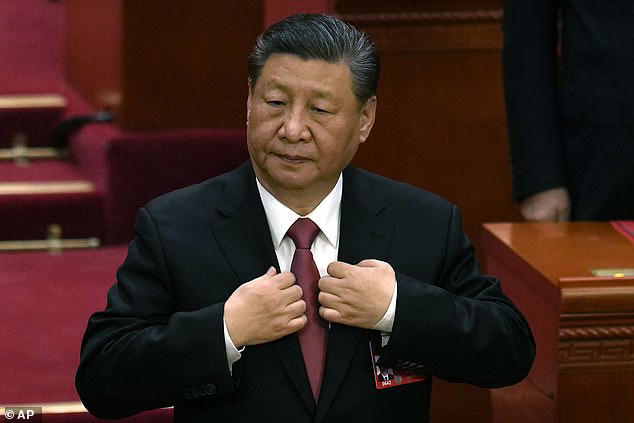China has issued a stern warning to the United States, asserting its intention to take “all necessary measures” to protect TikTok after Congress advanced a bill that could result in the app’s ban unless it severs ties with its Chinese owner. The House of Representatives overwhelmingly approved the bill on Wednesday, prompting a swift and vehement response from Beijing, which condemned Washington’s perceived “bandit” mentality.
The escalating tensions surrounding TikTok stem from concerns over its ownership by Chinese technology giant ByteDance and allegations of its close alignment with Beijing’s ruling Communist Party. Despite its global popularity, especially among younger users, TikTok’s ties to China have fueled apprehension in the West.
In response to the proposed ban, China’s commerce ministry spokesperson, He Yadong, emphasized the importance of respecting the principles of a market economy and fair competition, urging the US to cease what China views as unjust suppression of foreign companies. While the legislation must still clear the Senate, it is widely expected to pass, with President Joe Biden indicating his willingness to sign it into law.
Prior to the congressional vote, Beijing had warned of potential repercussions, asserting that the proposed ban would have adverse consequences for the United States. Following the House vote, Chinese officials reiterated their commitment to safeguarding China’s legitimate rights and interests.
Meanwhile, foreign ministry spokesperson Wang Wenbin criticized the vote as contrary to principles of fair competition and international economic and trade rules. Wang emphasized the importance of maintaining fairness and justice, cautioning against the arbitrary suppression of excellent companies from other countries under the guise of national security concerns.
The overwhelming support for the bill in the House reflects a rare moment of unity in politically divided Washington. However, the bill’s path through the Senate may be more challenging, given concerns among some lawmakers about taking drastic measures against an app with 170 million US users.
Following the House vote, the impact of the potential TikTok ban reverberated strongly among Gen Z influencers, who expressed their dismay at the prospect of losing their beloved app, along with their revenue streams and large followings. Despite the outcry from influencers and users, many anticipate that the legislation will garner sufficient support to become law, with the White House urging swift action from lawmakers in the Senate.
TikTok has consistently refuted allegations that it operates under the influence of China’s Communist Party. CEO Shou Zi Chew has encouraged users to voice their opposition to the proposed ban, and numerous TikTok creators interviewed by AFP have echoed this sentiment.
The app’s pivotal role in ongoing tensions between China and the United States has been underscored by disputes over technology, trade policies, and human rights issues. Lawmakers have expressed concerns about TikTok’s data privacy practices, including suspicions of location tracking and algorithm manipulation aimed at influencing young American users.
China has vehemently condemned what it perceives as concerted efforts to stifle its global ascendancy. Foreign Minister Wang Yi has criticized Washington’s actions, denouncing what he sees as an unprecedented level of blame-shifting under various pretexts.
In response to perceived national security threats, Washington has imposed restrictions on the activities of select Chinese companies in the US and restricted the export of sensitive technologies to China.
European regulators have also expressed apprehension about TikTok’s impact, with the European Commission scrutinizing the platform’s efforts, alongside other major tech companies, to mitigate the risks posed by artificial intelligence, including the proliferation of deepfake content that could influence elections.
Meanwhile, Italy’s competition authority has imposed a significant fine of nearly $11 million on TikTok for its alleged failure to adequately protect minors, signaling growing regulatory scrutiny of the app’s practices worldwide.
